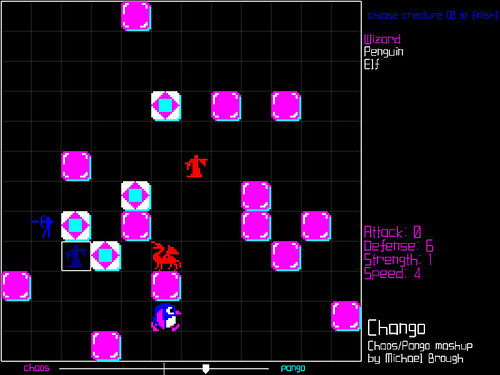I've realised some other reasons my first couple of plays of Dominion were not very good.
- The first game was 2-player, and my opponent had put out all 12 of each type of victory card (in 2-player games you're only supposed to use 8 of each); this served to make the game drag on for much longer after I'd already lost.
- The second game was 5-player, and the game actually only supports 2 to 4 players. The official rules for playing with 5 players say "play two games of 2 and 3 players". They then go on to specify how many cards to put out if you insist on playing with 5, but strongly recommend against it, particularly if any of the players are not experienced (as I was not). We didn't actually even play according to these rules, but rather by some ad-hoc house-ruled 5-player variant.
I was not aware that we weren't playing by the "proper rules" at the time, and it certainly helps to explain why my experience was not so good.
I'm not opposed to house-rules in general, but I feel like people often prematurely make up house-rules before they understand how a game works.
I've noticed this quite a bit recently in the BoardGameGeek discussions about the latest RFTG expansion (The Brink of War). This expansion adds a new resource called "prestige" to the game, which can be gained as a one-off bonus for putting certain marked cards into play, or generated repeatedly by using certain card powers, and gives a small bonus each turn to whoever has the most of it. A lot of threads have started up discussing how prestige is overpowered, unbalanced, broken, and suggesting various changes to "fix" it.
Amusingly, one common suggestion is to make the Prestige Lead bonus give cards instead of points every turn. This betrays a complete lack of understanding of the game; cards are worth a lot more than points, particularly near the start of the game (when there's most variance in terms of somebody getting the prestige lead easily because of the luck of initial draws). So this proposed "weakening" of prestige actually makes it stronger! But these people are playing with this variant and not minding; feeling like they've fixed the problem and prestige isn't overpowered anymore. And maybe they have fixed the problem - because the problem was in their heads the whole time: if everyone believes that prestige is all-powerful, they will focus their efforts on gaining it; but since prestige only pays off for the leader, those who have spent resources on gaining prestige and have failed to become the leader end up behind; a self-fulfilling prophecy.
So it's an interesting example of an unstable equilibrium. As long as all players pursue Prestige strategies, the Prestige Leader will tend to win, reinforcing the view that Prestige-based strategies are the strongest. But as soon as someone tries a different approach (like using strategies that were already strong before this expansion) this illusion will be broken. I'd think that in a game that takes up to half an hour there'd be little cost in trying something different - if it doesn't work out, never mind, you haven't spent much time on it (this is one of the reasons I strongly favour short games - you can fit so much more learning in) - but it seems that some people will try the same approach over and over again, no matter what they draw.
It's something to think about when designing games. You can't guarantee that someone's initial experience will be good, and no matter what you do people might just make up house-rules that overturn your efforts (this is much less of a problem with videogames). You can't guarantee that people will figure out the best strategies and not get stuck on local maxima (even in the third expansion, apparently). But it's worth doing your best to avoid these types of problem anyway.

